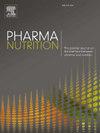探索左旋茶氨酸对抗炎症的分子机制和治疗功效
IF 2.4
Q3 NUTRITION & DIETETICS
引用次数: 0
摘要
慢性炎症是一种会对人体产生重大影响的持续性疾病,与多种慢性退行性疾病的发生和发展有关。了解慢性炎症的复杂作用对于发现创新的治疗方法至关重要,特别是那些从天然资源中提取的方法。这些策略旨在减少慢性炎症,减轻与之相关的疾病。从历史上看,天然产品因其治疗特性(包括抗炎作用)而被广泛使用。与合成药物相比,它们通常具有供应充足、成本效益高、副作用少等优势。L -茶氨酸是一种主要存在于茶叶中的氨基酸,因其潜在的健康益处,尤其是抗炎特性而备受关注。研究表明,L-茶氨酸可以降低体内炎症标志物的水平,调节免疫系统,防止过度的炎症反应。虽然越来越多的证据支持左旋茶氨酸能够减轻有害炎症,但其作用的确切分子机制在很大程度上仍不为人所知。本综述旨在阐明这些机制,全面了解它在调节炎症方面的作用及其作为天然治疗剂的潜力。本文章由计算机程序翻译,如有差异,请以英文原文为准。
Exploring the molecular mechanisms and therapeutic benefits of L-theanine in counteracting inflammation
Chronic inflammation, a persistent condition that can significantly impact the body, is linked to the development and progression of numerous chronic degenerative diseases. Understanding its complex role is essential for discovering innovative therapeutic approaches, particularly those derived from natural sources. These strategies aim to reduce chronic inflammation and mitigate its associated diseases. Historically, natural products have been used for their therapeutic properties, including anti-inflammatory effects. They often offer advantages such as abundant availability, cost-effectiveness, and fewer side effects compared to synthetic drugs. L-theanine, an amino acid primarily found in tea leaves, has garnered significant attention for its potential health benefits, especially its anti-inflammatory properties. Research suggests that L-theanine may decrease levels of inflammatory markers in the body and modulate the immune system, preventing excessive inflammatory responses. While the growing evidence supports L-theanine's ability to attenuate harmful inflammation, the exact molecular mechanisms underlying its action remain largely unknown. This review seeks to elucidate these mechanisms, providing a comprehensive understanding of its role in modulating inflammation and its potential as a natural therapeutic agent.
求助全文
通过发布文献求助,成功后即可免费获取论文全文。
去求助
来源期刊

PharmaNutrition
Agricultural and Biological Sciences-Food Science
CiteScore
5.70
自引率
3.10%
发文量
33
审稿时长
12 days
 求助内容:
求助内容: 应助结果提醒方式:
应助结果提醒方式:


